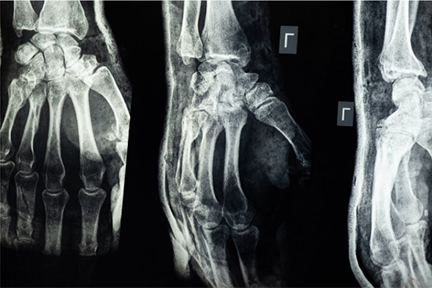
It is relatively common to get an x-ray scan done, whether you're going to the doctor or the dentist. They've become quite popular and very helpful in the medical field.
There's also a high chance that you actually don't know that much about them. Well, buckle up as we guide you through a mini-medical crash course.
Okay, not really, but you are about to get a lot more clued up about the world of x-ray technology.
How is an x-ray done?
The x-ray is painless and usually lasts just over 15 minutes. It can be performed at hospitals or private radiology practices. They are conducted by a medical imaging technician or a radiographer.
The pictures from the x-ray are then examined by an expert medical practitioner known as a radiologist. Before any X-rays, you will have to remove any metal objects and jewellery.
You may lie down or remain standing. It all depends on which part of your body needs examining. You may need to wear an apron or a protective shield like an x-ray protective vest to protect the parts of your body that won't be x-rayed.
It's also necessary to avoid making any movement while in the x-ray machine. You'll be asked to take a deep breath for the duration of the pictures.
What happens during an X-ray?
X-rays generally have minimal preparation required. The doctor may ask you to remove jewellery, eyewear, or anything else that might interfere with the photograph.
An X-ray tube hangs from the table, and the films can be found underneath the tables.
The machine emits a beam of radiation into our bodies. Our dense and hard bones block this beam, so they are visible on the screen below.
The radiation passes into soft tissues such as fat and muscle, which appear grayish in the x-ray scans. The air that is inside our bodies appears in black.
In some instances, you may need to take a contrast dye or contrast material before an x-ray examination.
What is contrast dye?
Contrast dye, also referred to as contrast medium, can be used for standard x-ray imaging or angiographies.
It helps improve the contrast enabling easy detection of healthy and diseased areas. It can be administered orally or by injection.
The most commonly applied contrast dyes are gadolinium contrast medium and iodine-containing contrast medium.
Tell a doctor before taking X-rays if you are unsure about your blood pressure and kidneys, as people can have allergic reactions.
Are there risks with x-rays?
There are a few. An x-ray uses radiation and light to produce an image. Certain types of radiography, including CT scans and angiograms, use greater doses of radiation than standard radiography.
The radiation dose is mild, and it is unlikely to cause a severe problem. Still, you should consult your doctor for further advice if you are worried.
In general, x-rays are more beneficial in diagnosis than they are in the risk of radiation. Overall it's a good idea to get the needed tests and x-rays if needed. They are low risk.
Types Of X-rays
There's a plain x-ray, otherwise known as plain radiography. There is also CT scanning, also known as computed tomography.
There is fluoroscopy; this can produce moving images of your organs. You can get an x-ray of the breasts, known as a mammogram, and one of your blood vessels, known as angiography.
FAQs
Is There A Lot Of Radiation Exposure During An X-ray?
The radiation level in an x-ray is low, so you are not exposed to much at all. Obviously, exposure over time can be dangerous.
If you are going in for an x-ray or two from time to time, then you shouldn't worry.
Are X-ray Images Always Necessary?
Not always; they can't pick up everything. But if there is a minor or a severe issue in your body, then your doctor may recommend one.
Having an x-ray done will only help you and give the doctor more insight into what is going on in your body.
What Are The Side Effects Of X-ray Radiation?
Side effects of radiation include fainting, bleeding, vomiting, and hair loss. However, the radiation in an x-ray is so low that you will not experience side effects like this.
Radiation can be harmful, but the doctors want to help you and will not expose you to anything that can be dangerous.
